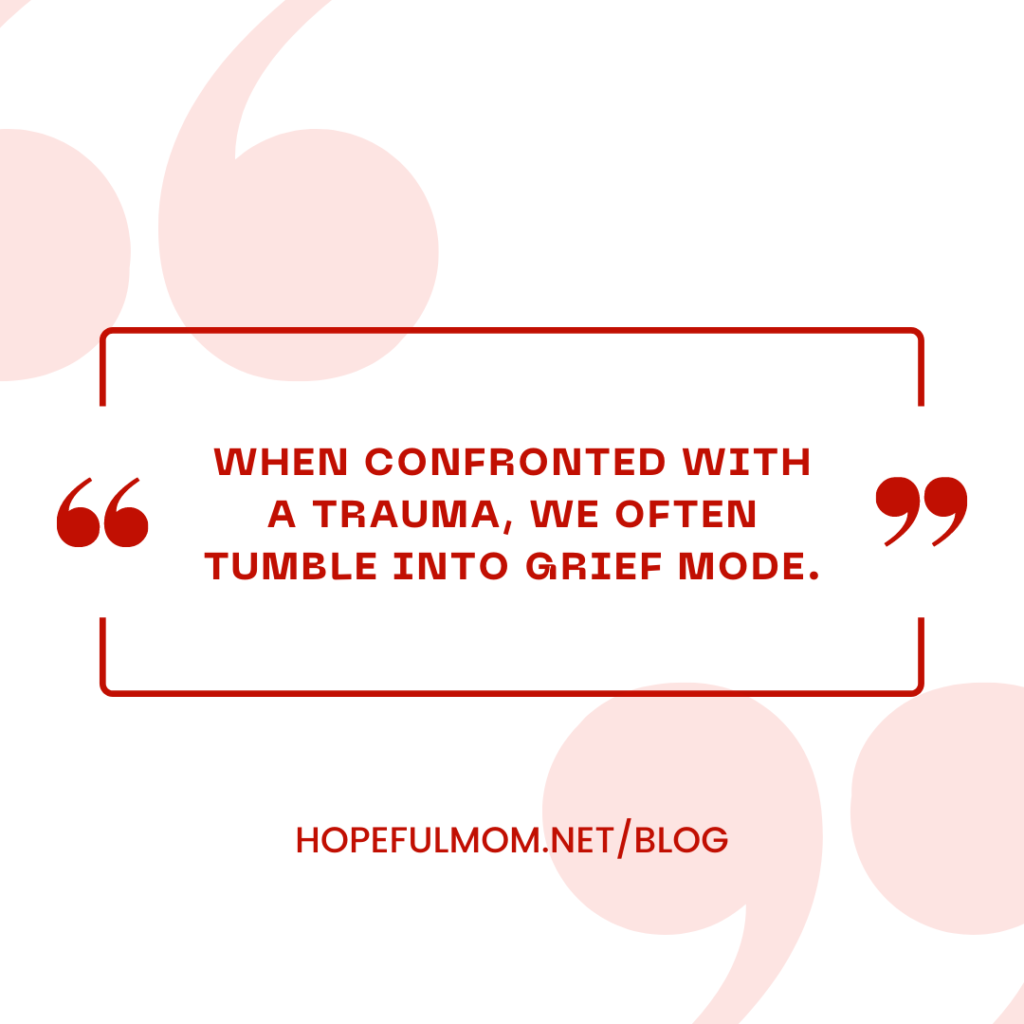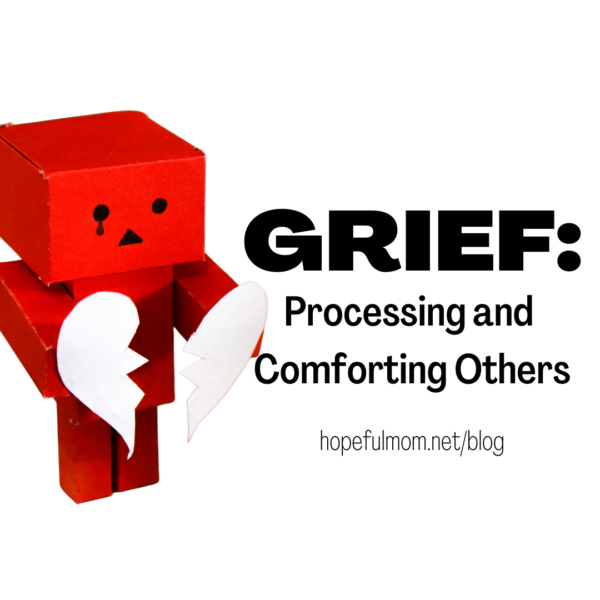How do we comfort those who are grieving? And how do we process our own grief? For many of us, our pulse quickens and our palms sweat when we think about grief—ours or that of someone we know. We dodge the situation as much as possible.
I don’t attend funerals. They’re awkward. I don’t know what to say, and I don’t know how to act. I’m nervous about seeing a dead body, and I’m fearful of tripping over my words while interacting with the family. I assume I’m not comfortable in this situation because I haven’t suffered the death of anyone extremely close to me.
But I have experienced grief.
We grieve for many reasons—the loss of a job, a move, a divorce, and, of course, the death of someone close. Sometimes we see it coming. We say good-bye to friends before moving to a new city. We walk our children through their growing up years and plan for their departure from home. But, other incidents hit us before we’re prepared. A husband walks. The boss fires. Our child slips into an addiction without our knowledge. When confronted with a trauma, we often tumble into grief mode subconsciously.

When my son’s addiction to pornography was exposed, I went sailing into the stages of grief. But I didn’t know it. Now I realize I was grieving the loss of the son I thought I knew. And that’s okay.
In the midst of grief, it’s difficult to create a plan of action. But let me propose that it may be helpful to reach out to others. Give friends and family the opportunity to help you. Be aware, however, that your loved ones may need some prompting on what to say or do.
On the other side of the coin, you may be the one comforting a friend, neighbor, or family member. My best advice: have thick skin, read the situation, and be willing to say nothing. Just be present.
Grief: Processing and Comforting Others – My best advice for consoling: have thick skin, read the situation, and be willing to say nothing. Just be present. #grief #hopefulmom #difficultconversations Click To TweetSeveral years ago, my close friend told me she miscarried. Because I had walked that road, I had an idea of the hurt she was experiencing. I said, “I’m so sorry,” and I cried. She cried. I cried some more. She told me her story. I nodded, listened, and hugged. I had no advice. I had no suggestions. Her experience was new. Her pain was raw. Self-care and steps toward healing would eventually come, but not yet. When the timing felt right, I prayed.
Henri Nouwen, in his book Out of Solitude: Three Meditations on the Christian Life, says “When we honestly ask ourselves which person in our lives means the most to us, we often find that it is those who, instead of giving advice, solutions, or cures, have chosen rather to share our pain and touch our wounds with a warm and tender hand. The friend who can be silent with us in a moment of despair or confusion, who can stay with us in an hour of grief and bereavement, who can tolerate not knowing, not curing, not healing and face with us the reality of our powerlessness, that is a friend who cares.”
During my son’s pornography struggle, I felt alone. I was unable to reach out to others, to talk about my problems, to process my grief. I knew of no other friend or relative who had been through what I was experiencing. The one friend I called with “sat with me.” She comforted me and let me be me. She didn’t try to fix it. I’m grateful for her presence.
From my limited experience with grief, I’d like to offer a few suggestions:
1 – Name your emotion. If you are grieving, it’s okay. Look it in the face and name it.
2 – Mourn your loss. It’s unhealthy to ignore the problem. Go ahead and mourn—whatever that looks like. Weep. Scream. Sleep. Talk it out with God. Take some time to reflect on who or what you lost. Say good-bye.
3 – Reach out. Contact a trusted friend. Give them the opportunity to grieve with you and help you process your loss. Pour out your heartaches and fears.
4 – Take care of yourself. Grieving is a process. Cut yourself some slack, participate in activities that lift your spirits, and remember to eat properly and exercise.
5 – Call a professional, if needed. Contact a counselor or pastor if you feel stuck.
6 – Find a friend or a support group. Find someone who will sit with you in your grief and help you process your emotions and concerns. Find a support group of people who understand your heartache. You’re always welcome to contact me.
I’ve only scratched the surface of grief, the stages of grief, and processing grief. If this post has resonated with you and you want more information, I recommend doing more research and reading some books on it. The one I am currently reading is Permission to Mourn by Ruth Potinu.
Please share this post on social media or through email. Other parents need the hope that comes from knowing they are not alone. Subscribe below for a FREE PDF download, updates on new blog posts, and information on my book, Sexpectations: Helping the Next Generation Navigate Healthy Relationships.
About the author
For more about Barb, visit the About page. For information on Barb's book, Sexpectations: Helping the Next Generation Navigate Healthy Relationships, visit the Book page.



